DJ Khaled's empty optimism
The self-styled hip-hop mogul has built his brand on hyper-positive sloganeering. But does it really add up to anything?
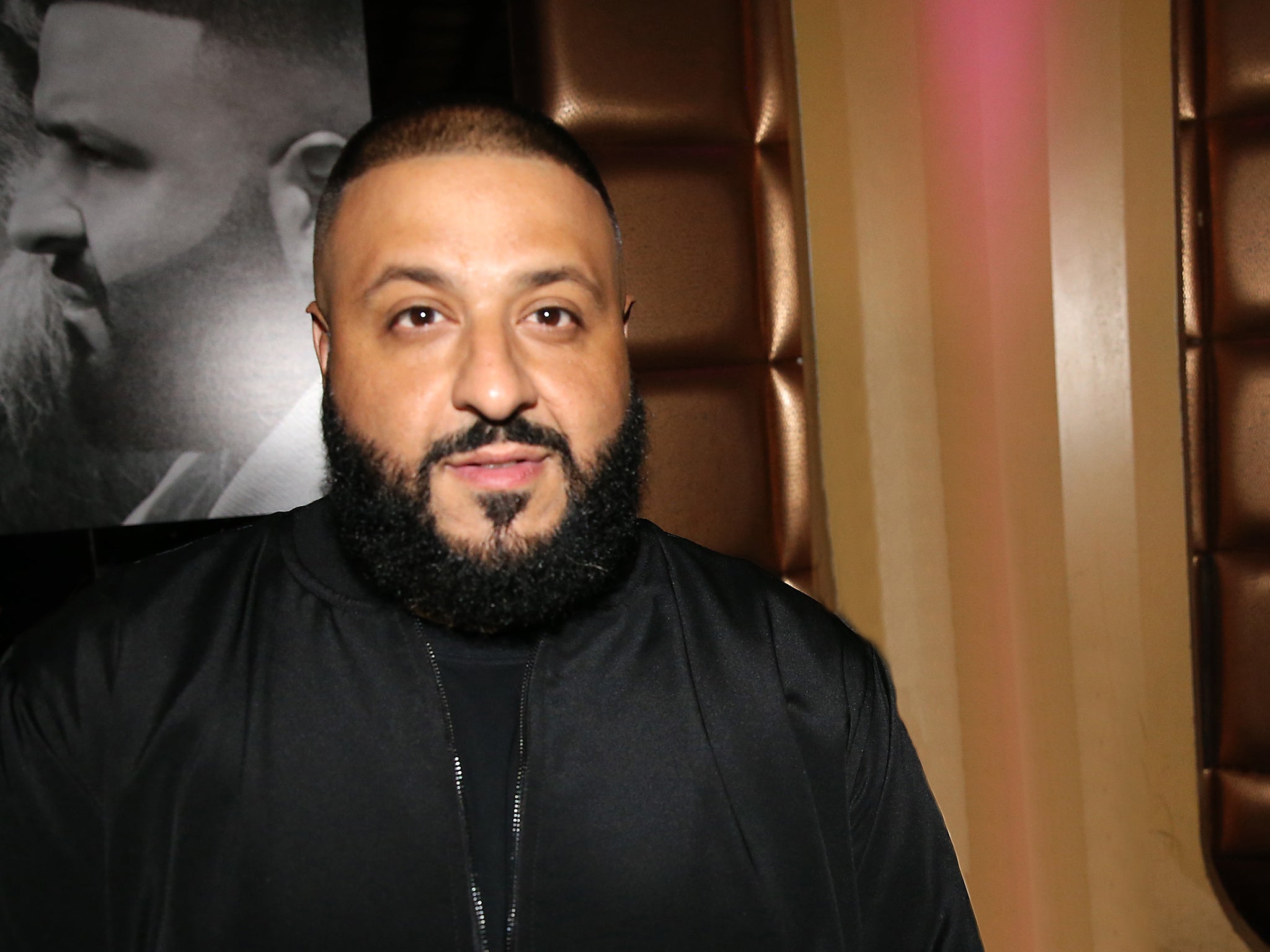
Your support helps us to tell the story
From reproductive rights to climate change to Big Tech, The Independent is on the ground when the story is developing. Whether it's investigating the financials of Elon Musk's pro-Trump PAC or producing our latest documentary, 'The A Word', which shines a light on the American women fighting for reproductive rights, we know how important it is to parse out the facts from the messaging.
At such a critical moment in US history, we need reporters on the ground. Your donation allows us to keep sending journalists to speak to both sides of the story.
The Independent is trusted by Americans across the entire political spectrum. And unlike many other quality news outlets, we choose not to lock Americans out of our reporting and analysis with paywalls. We believe quality journalism should be available to everyone, paid for by those who can afford it.
Your support makes all the difference.Several centuries hence, as historians try to understand our strange cultural moment from their Martian ivory towers – beheading videos gone viral, presidential politics playing out on Twitter, cold-case murders solved on Reddit – they will come upon the curious case of Khaled Mohamed Khaled, much better known as DJ Khaled.
They will discover that around the year 2016, the 41-year-old Palestinian-American was among the most famous people on the dying, desiccated planet known as Earth. Like a few of Khaled’s contemporaries, these scholars will be mystified by the source of his vast celebrity, which is tethered to no discernible achievement or body of work.
It will take reams of academic holograms to settle on the consensus that DJ Khaled is the kind of jester every culture in decline requires to speak truth to fading power. Some will be distracted and amused, some will be horrified and perplexed, while the truly perspicacious will be packing their bags for the first shuttle to the Red Planet.
What, exactly, Khaled does is a matter of vigorous online debate. He has made rap music but does not actually rap, preferring to have vastly more talented associates to do the work for him – on one of his most popular tracks, All I Do Is Win, which has 70 million YouTube views, Khaled shouts his name a couple of times but otherwise mugs for the camera like a dispensable extra, leaving the work to T-Pain, Rick Ross, Ludacris and Snoop Dogg.
He calls himself a producer but evinces no talent for musical arrangement. He claims to be a mogul but has none of the corporate stature of Jay Z or Dr. Dre. Khaled does have an online store that sells items emblazoned with his famous slogans, but, well, so does Ted Nugent.
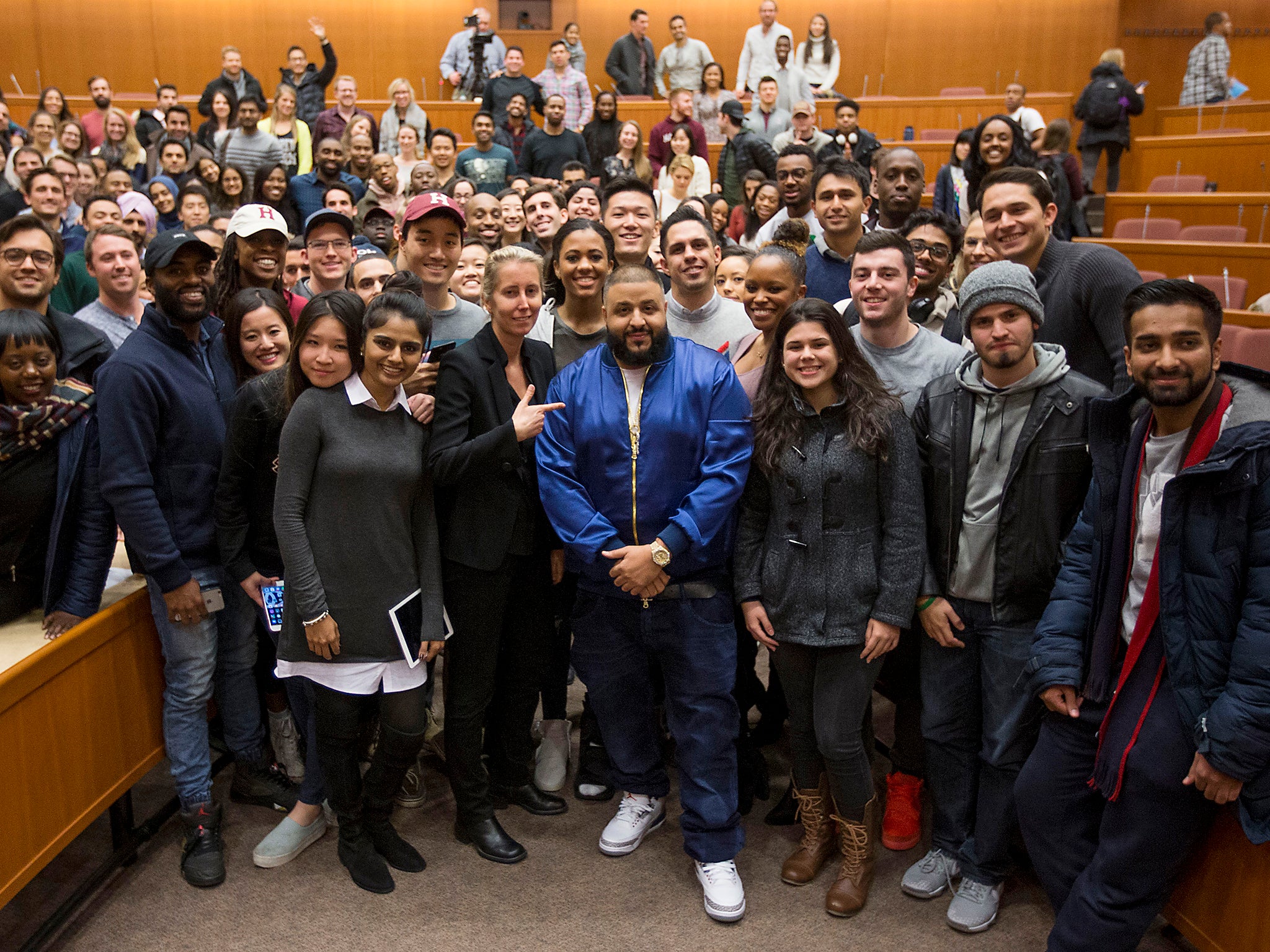
His slogans are, as future historians will inevitably conclude, the key to understanding Khaled and his Khaled-sized success. Ursine but not the least bit threatening, in love with big cigars and really big cars but avoiding the edgier trappings of the gangsta trope, Khaled is the millennial generation’s foremost prophet of noxiously empty optimism. He is Norman Vincent Peale – midcentury America’s great “possibilitarian” author of The Power of Positive Thinking – with a baby blue Bentley and a vast social media empire that is a land of Lotus-eaters, where all is good and all are blessed, and you are always on the cusp of winning and moving into a mansion that is nearly as big as his. You would know, if you were a fan of DJ Khaled, that his Miami mansion is enormous, as many of his posts are set there.
A new age prosperity preacher, he spreads his gospel in Snapchat videos that, The New York Times estimates, are each seen by about two million people. In his dispatches from splendid South Florida, Khaled slathers his body in cocoa butter, reviews the meals prepared by Chef Dee, waters his plants and shouts Rastafarian slogans in a bad Jamaican accent from his Jacuzzi. He is fond of recording himself in the shower, from which he dispenses indispensable wisdom: “Follow code…feed ur family and keep ur face clean.” From his jetski, he tells his fans, “Ride wit me through the journey to more success.”
Once, he got lost jetskiing as night fell. This was, of course, recorded in a series of snaps, right through his joyous landfall. “Let’s win more,” he concluded as he returned home. If some Good Samaritan saved him from the sharks (he has never been clear on this point, despite the incident garnering enough coverage to make most foreign nations jealous), Khaled offered that kind soul no thanks. The whole point of DJ Khaled is that you will always be rescued from rough seas, and although you are already great, you should be even greater. More luxurious jetskis await, as well as yachts. The dream is yours, as long as you listen to DJ Khaled…and purchase Cîroc mango vodka, for which he has become a “brand ambassador.”
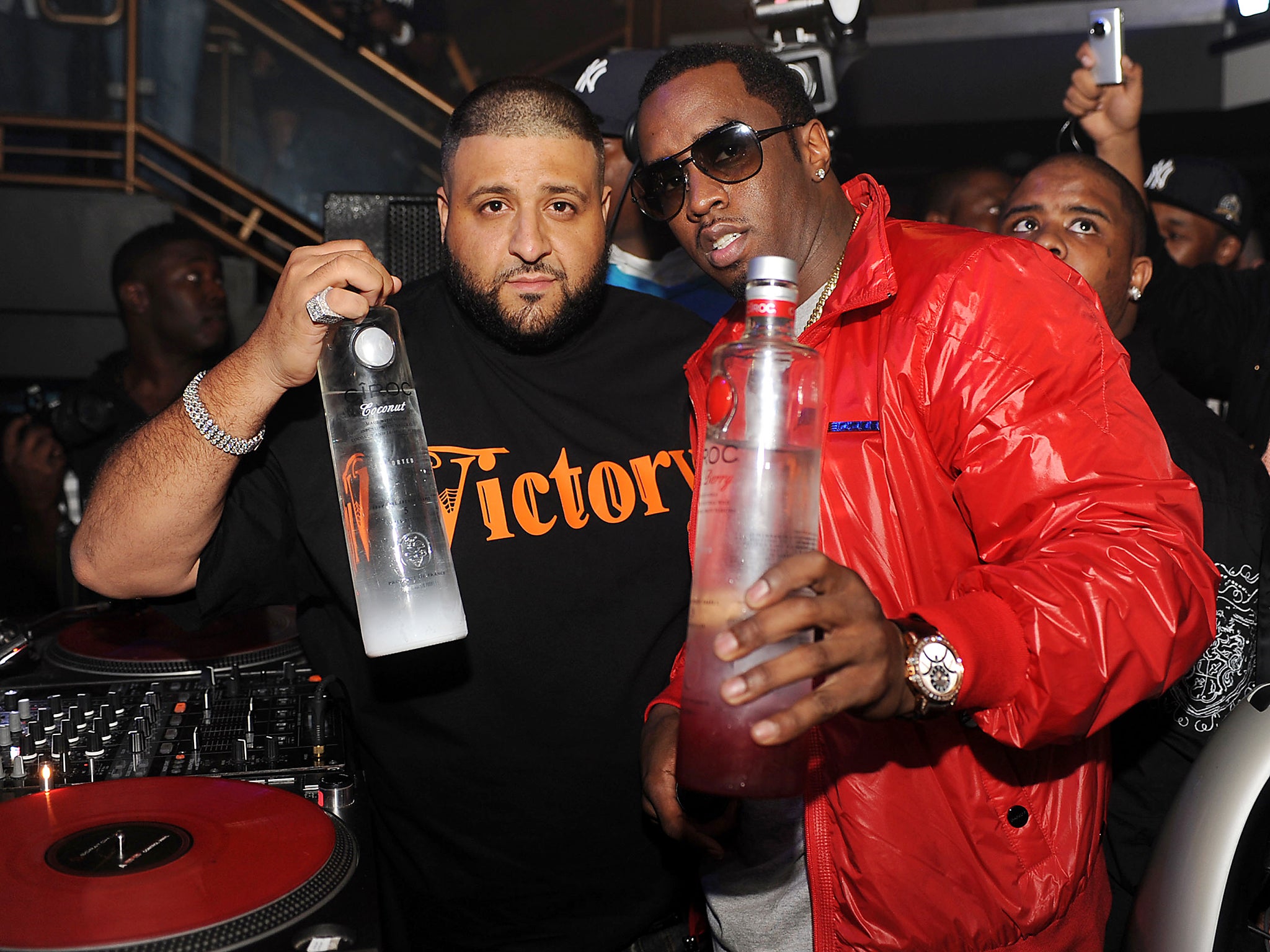
Khaled may sell vodka to pay the bills, but this is just a side gig for the philosopher-mogul. Say what you will about Kim Kardashian, but she isn’t selling anything other than stuff: bracelets, creams, whatever. Khaled’s outlook is more sophisticated, less obvious. He wants your buying power, but he’d rather have your faith. As any televangelist can tell you, the wallet will always come out after the hosannas go quiet. Khaled’s hosannas are better known as memes. There is his famous greeting, “Bless up”, as well as his promise that he knows exactly what it takes to win: “I got the keys”. How do you know he has the keys? See above: “All I do is win”. Does anyone want Khaled to not win? Yes, a lot of people: “They” don’t want you to win. What do you do once you have triumphed over “they” (the specific constituents of this shadowy group are never described) and have won once again? Let the world know by announcing it on social media: Another one.
DJ Khaled’s new book is called The Keys, and it is less a book, as one might understand those antiquated cultural artifacts, than a director’s cut of his Snapchat feed assembled into occasionally coherent sentences organised into chapters with headings like “Be Yourself” and “Glorify Your Own Success.” The book is 212 pages long, and it contains exactly one interesting sentence. Actually, it’s only a clause: “show me another Palestinian mogul who succeeded in hip-hop.”
You can’t, of course. Khaled could have used the considerable talents of his ghostwriter, the journalist Mary H. K. Choi, to give far greater depth to the story of his family, immigrants from the West Bank who became successful clothiers in Orlando, Florida (one of their clients was the NBA star Shaquille O’Neal), only to apparently lose their wealth, in Khaled’s vague telling, to a federal government that considers the payment of taxes a major key to its own success. Khaled, who never finished high school, rose diligently through the ranks of the hip-hop scene in Orlando and New Orleans – as a record seller, party promoter and disc jockey – before finally making it big in Miami, a city for which he professes a disturbingly deep affection. This would all have been far more interesting were it freed of the positivity preaching, but Khaled’s life and Khaled’s understanding of life are impossible to separate – all his reflection is pointed inward, in keeping with the prevalent narcissism of the age. He does allude to the jetski incident, offering this sound advice: “Don’t drive your jetski in the dark.”
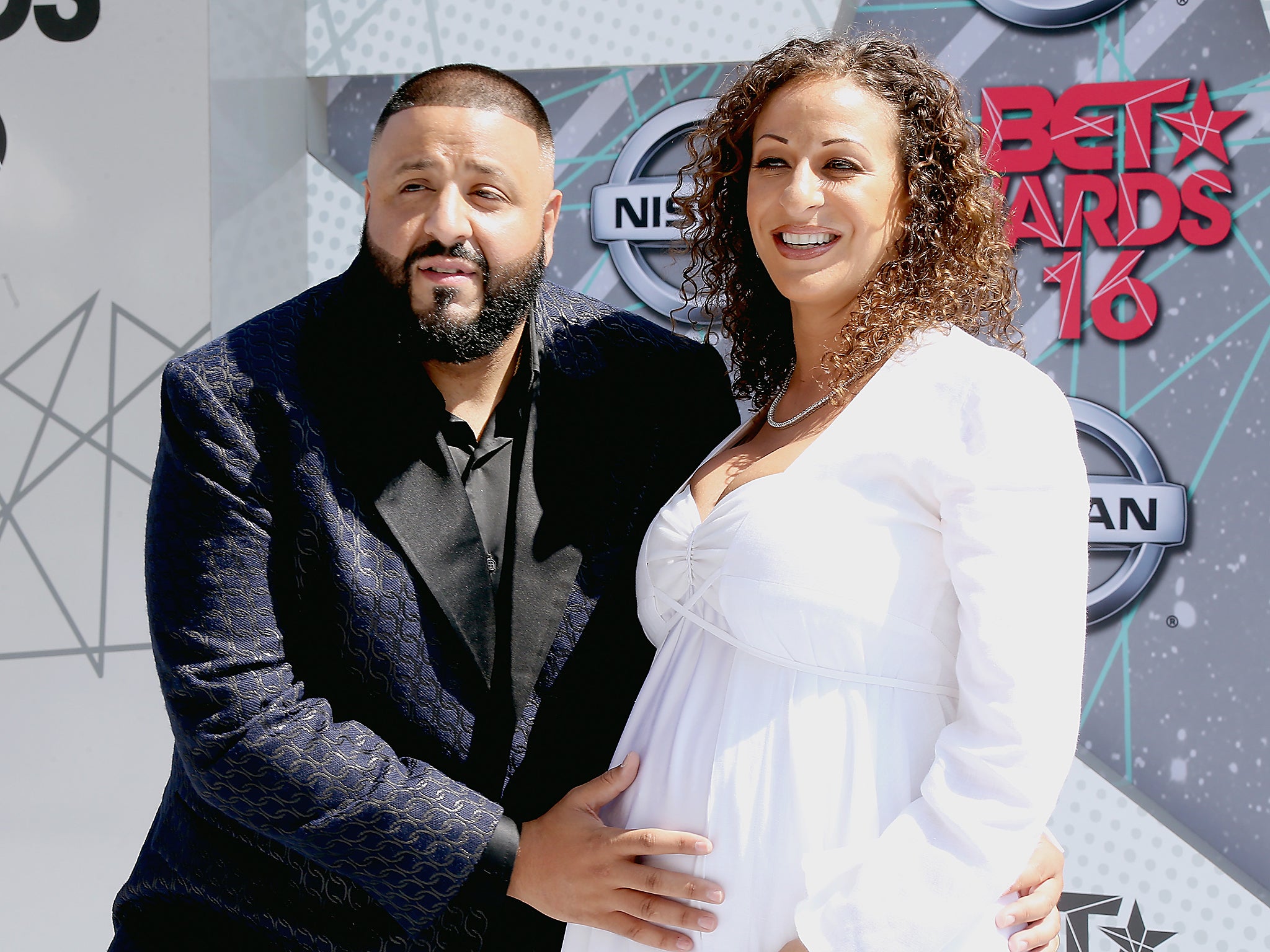
Mostly, though, The Keys is a paean to the kind of cheerful self-obsession that has come to rule the American psyche. Among its most notorious practitioners is the president-elect, Donald Trump, who has, among other transparently preposterous boasts, claimed to possess “the best temperament or certainly one of the best temperaments of anybody that’s ever run for the office of president,” to have one of the best memories in the world and to “know more about ISIS than the generals do” – and to have large hands. None of this is true, but in a post-truth world, that’s pretty much beside the point.
Note that Trump’s main complaint, “We don’t win anymore,” is just an obverse of Khaled’s “All we do is win.” Both are hollow gourds, but struck hard enough, they ring true. Khaled engages in plenty of Trumpian self-aggrandisement in The Keys: “I’m humble. I was born humble, but now I get humbler every day. Now, just because I’m humble doesn’t mean I’m not confident. I’m bold, and I know I’m one of the greatest to ever do it,” whatever “it” is. In case you aren’t convinced, the book is filled with laudatory blurbs from music producers and executives, all of them seemingly written by the same intern fresh out of the University of Southern California. Some are born great, some have greatness thrust upon them and a blessed few are great because Lyor Cohen and Kendall “Young Sav” Freeman say so.
Detractors – ie haters, ie “they” – have suggested that Khaled’s entire persona is a winking joke, that he’s really just an Andy Kaufman with gold chains and exceedingly well-watered plants (Khaled loves to water his plants, which he calls his “angels”). Even if that is the case – and there’s no reason to think that – Khaled’s popularity still points to a troubling feature of modern American life. More than 20 years after Peale’s death, we remain entranced by his suggestion that self-confidence is what separates life’s victors from its victims. Only today, his facile ideas have found a new home on the social media platforms that have made DJ Khaled famous.
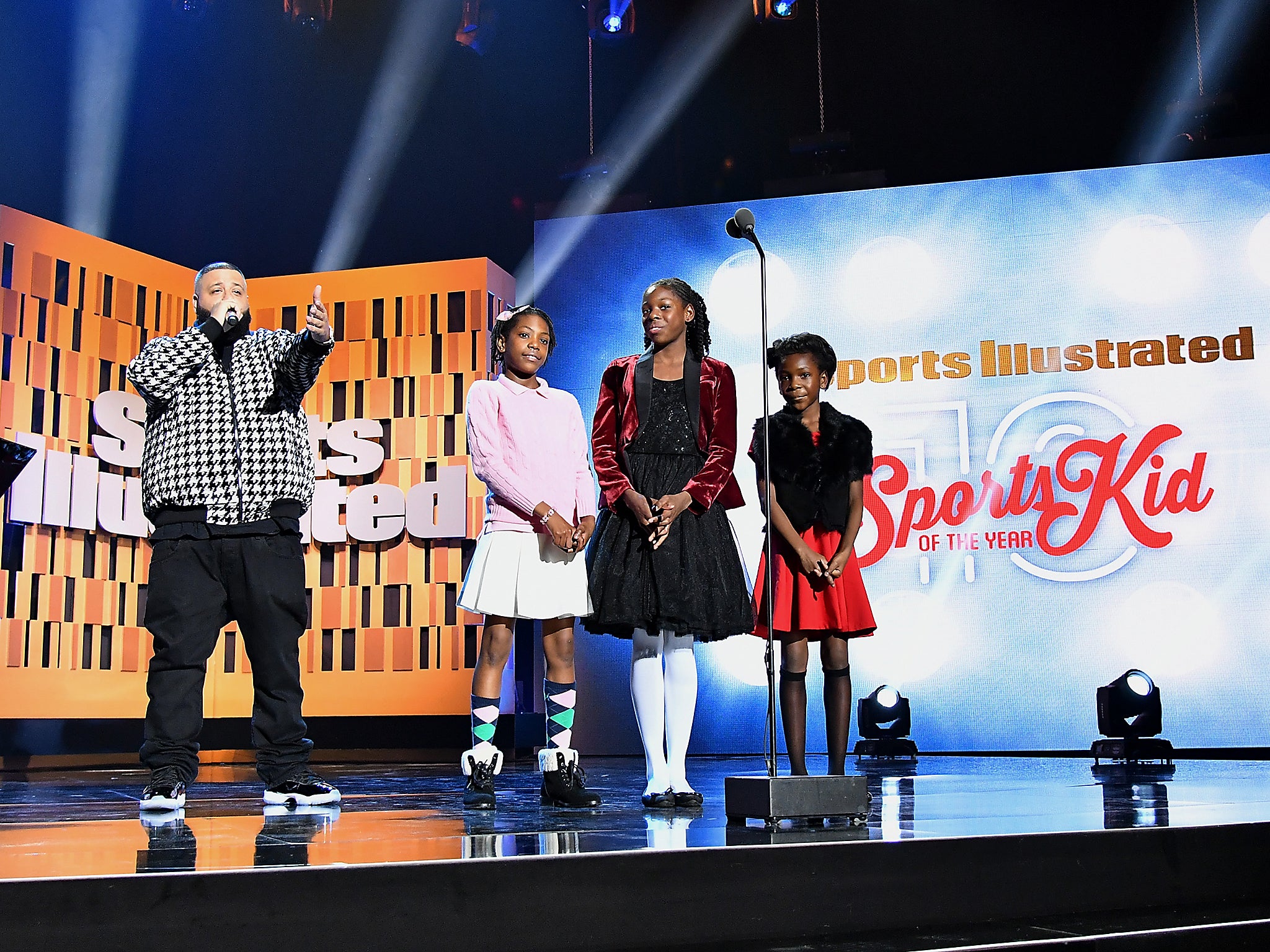
In a world that teems with ghastly news, DJ Khaled seems innocuous enough, a cuddly sloganeer dispensing hope like John D Rockefeller dropping dimes on the poor. But that common view of Khaled ignores the fact that positivity harms our ability to work hard, persevere, succeed – the very traits positivity promises to enhance. A surplus of positivity has made us passive and self-satisfied. On a recent episode of the Hidden Brain podcast, the psychology scholar Jean Twenge explained to host Shankar Vedantam exactly why the cult of self-esteem can be so dangerous to young people: “If you’re already great, why should you do anything?” She pointed to studies that showed successful people often do not have great self-confidence. For example, the least self-confident ethnic subgroup in the nation is Asian-Americans – who also happen to be among the most academically successful and upwardly mobile.
Social media has been shown to decrease self-esteem, with its trolls telling you to crawl under a rock and die because you happen to think Ray Romano is funny, and its showoffs Instagramming their perfect lives, blissed-out and gluten-free. Khaled is an antidote to all that, allowing you to bask in his positivity, which includes both his success and, if you listen carefully enough and buy his flip-flops, yours. When he takes snaps of his fans – Fan Luv, he calls them – they crowd with desperate joy into the frame, as if Khaled’s good vibes were an extremely scarce resource they must compete for.
But what is winning, anyway? Khaled’s keys are nothing new, relying on shopworn premises of marketing and networking. His genius is self-promotion, which has shed the gaudy glaze of crassness to become an indispensable skill of the 21st-century workplace (including, apparently, the Oval Office). The Keys has plenty of more sober cousins: Reinventing You: Define Your Brand, Imagine Your Future; Power Your Career: The Art of Tactful Self-Promotion at Work; How to Sell Yourself. Says a mystifying headline from The Huffington Post: “Personal Branding: It’s Not About Self-Promotion, it is a Leadership Imperative.” Read a few such articles by self-proclaimed marketing experts, and DJ Khaled’s snaps will indeed come to seem like nuggets of hard-won wisdom.
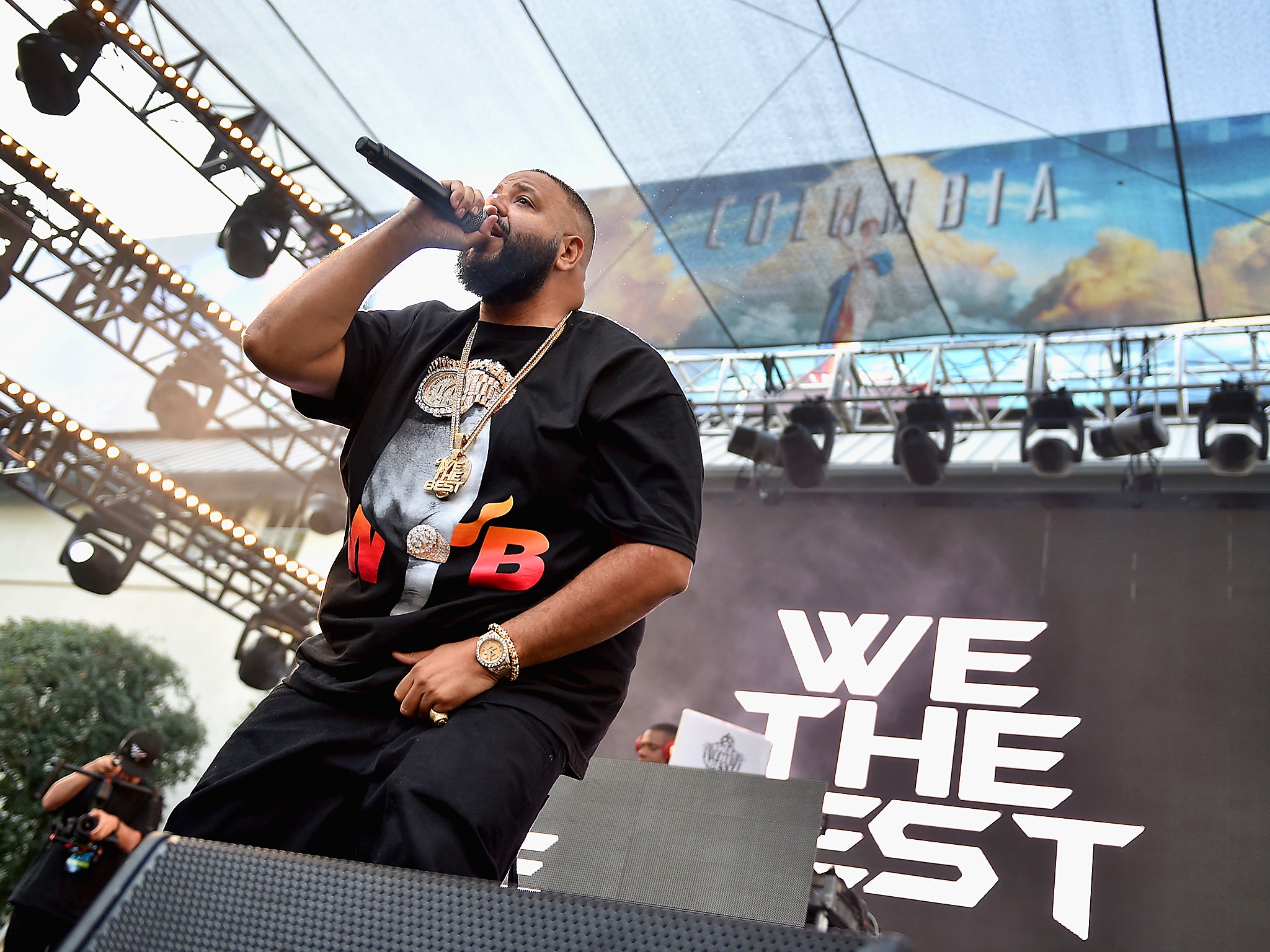
It’s true that self-promotion can be beneficial, in particular to women and minorities in majority white-male institutions like investment banks and tech companies. But do not mistake DJ Khaled for Sheryl Sandberg of Lean In fame. By the end of The Keys, I finally understood the source of Khaled’s fame: He is a professional insinuator, a hanger-on who managed to become as indispensable as the people he was clinging to. He wants us to see him as the equal of Sean “P Diddy” Combs, but my mind keeps snapping back to TS Eliot’s servile J Alfred Prufrock: “No! I am not Prince Hamlet, nor was meant to be; Am an attendant lord, one that will do To swell a progress, start a scene or two, Advise the prince; no doubt, an easy tool, Deferential, glad to be of use, Politic, cautious, and meticulous; Full of high sentence, but a bit obtuse; At times, indeed, almost ridiculous – almost, at times, the Fool.”
In one passage in The Keys, Khaled describes how he once went to New York City to secure a collaboration with Jay Z. “I was relentless, and at the end of the day our relationship and his being my friend made it happen. Every morning I woke up and I believed I’d get that verse.” This seems less like valuable persistence than low-grade stalking, confirmed by an inadvertently revealing testimonial in The Keys: “This man does not take no for an answer.”
Except sometimes the answer is no. Not because “they” rigged the system but because the race isn’t always to the swift, and sometimes you aren’t as swift as you thought you were, and sometimes you twist an ankle. Thus we lose, sometimes bigly. We lose in Pennsylvania and Wisconsin, and we do not know why. God does not automatically confer his blessings on us merely because we invoke his name. “More success is always the answer,” Khaled says. To what? For whom? And really, always? The answer is never reflection, kindness or, God forbid, silence?
What this inspires is not ambition – which, if you have it, you don’t need Khaled to stoke – but an inability to deal with failure and disappointment, which are far more rare and valuable qualities than a winning attitude. My favorite parts of Khaled’s book are the glimpses of everyday life. The same, on Snapchat, have the feel of celebrity so close you can nearly smell the cocoa butter. Here, shorn of social media’s glow, these moments have a hilarious mundanity: “Look in my fridge: There are delicious juices and smoothies. I have healthy snacks all over my house for everyone.” In one of his more famous snaps, shot while in bed, DJ Khaled declares that “the key to more success is to have a lot of pillows.”
You heard the man. Get some pillows, wash your face, don’t jetski in the dark and you might end up living a pretty decent life.
© Newsweek
Join our commenting forum
Join thought-provoking conversations, follow other Independent readers and see their replies
Comments